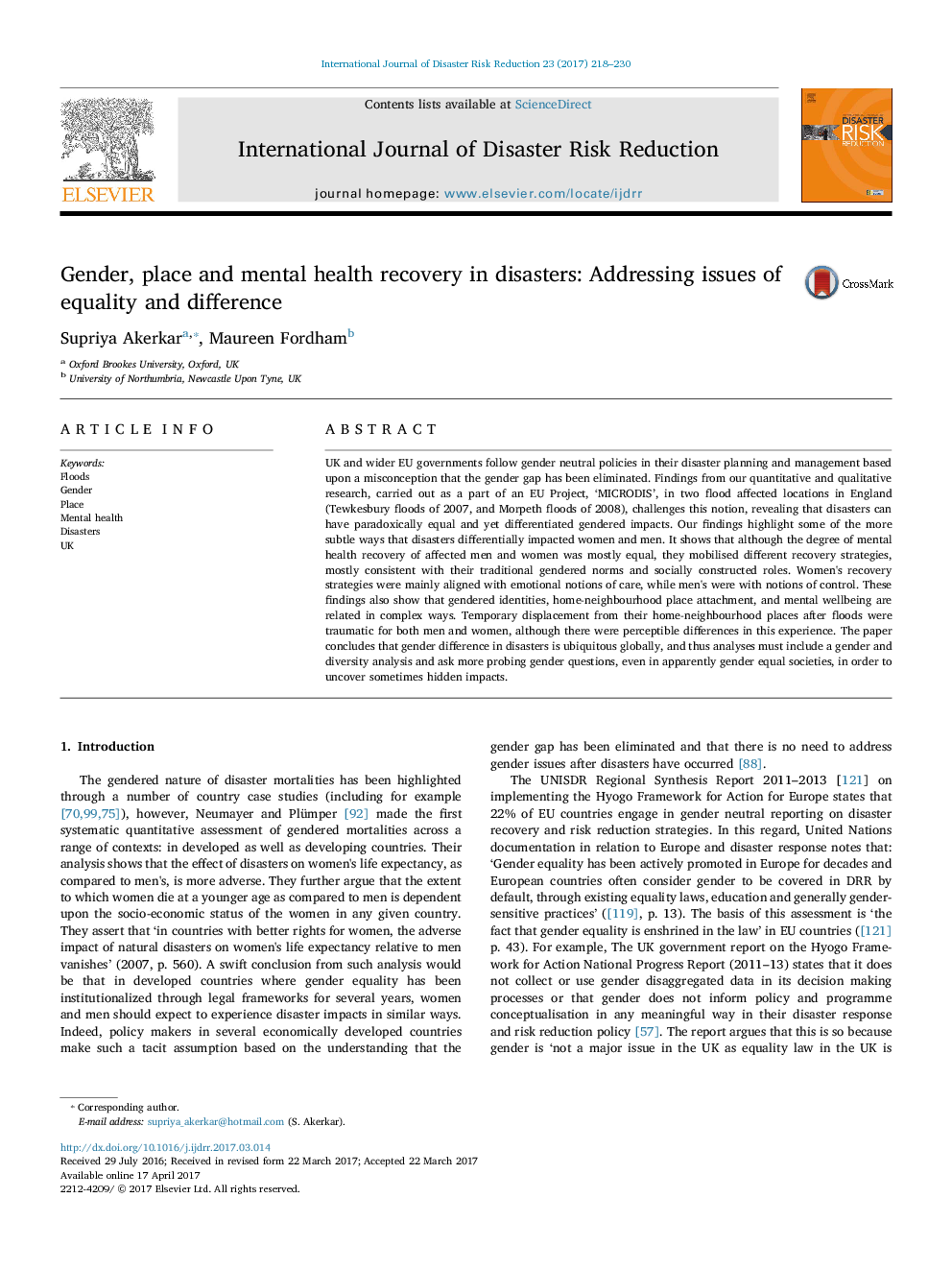ترجمه فارسی عنوان مقاله
بهبود وضعیت جنسیت، محل و سلامت روان در بلایای طبیعی: مقابله با مسائل مربوط به برابری و تفاوت
عنوان انگلیسی
Gender, place and mental health recovery in disasters: Addressing issues of equality and difference
| کد مقاله | سال انتشار | تعداد صفحات مقاله انگلیسی |
|---|---|---|
| 130155 | 2017 | 13 صفحه PDF |
منبع

Publisher : Elsevier - Science Direct (الزویر - ساینس دایرکت)
Journal : International Journal of Disaster Risk Reduction, Volume 23, August 2017, Pages 218-230
ترجمه کلمات کلیدی
سیل، جنسیت، محل، سلامت روان، بلایای طبیعی، انگلستان،
کلمات کلیدی انگلیسی
Floods; Gender; Place; Mental health; Disasters; UK;

